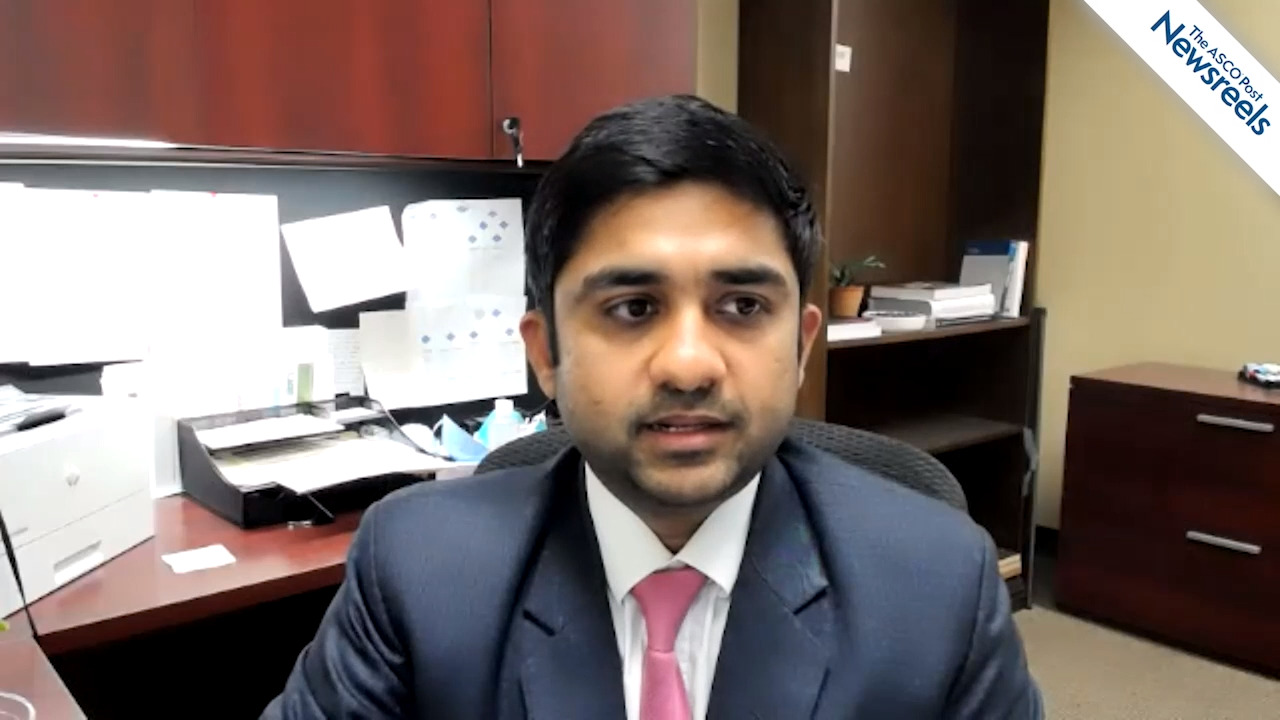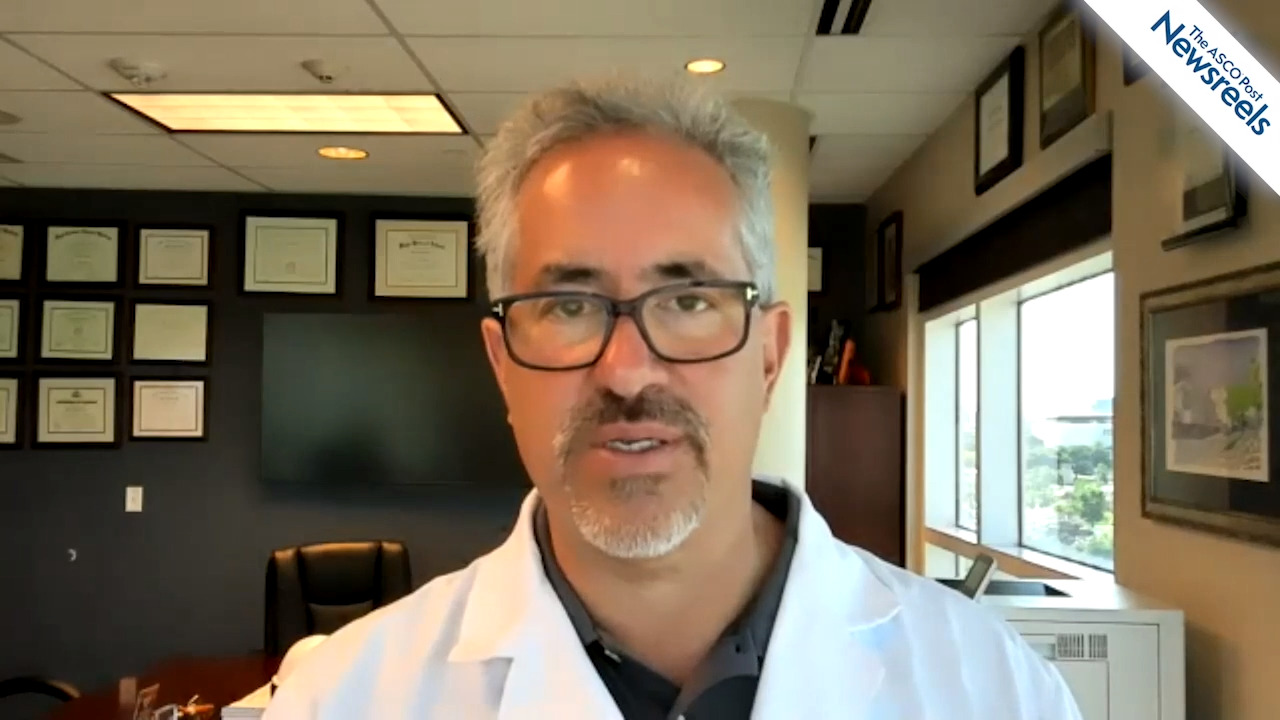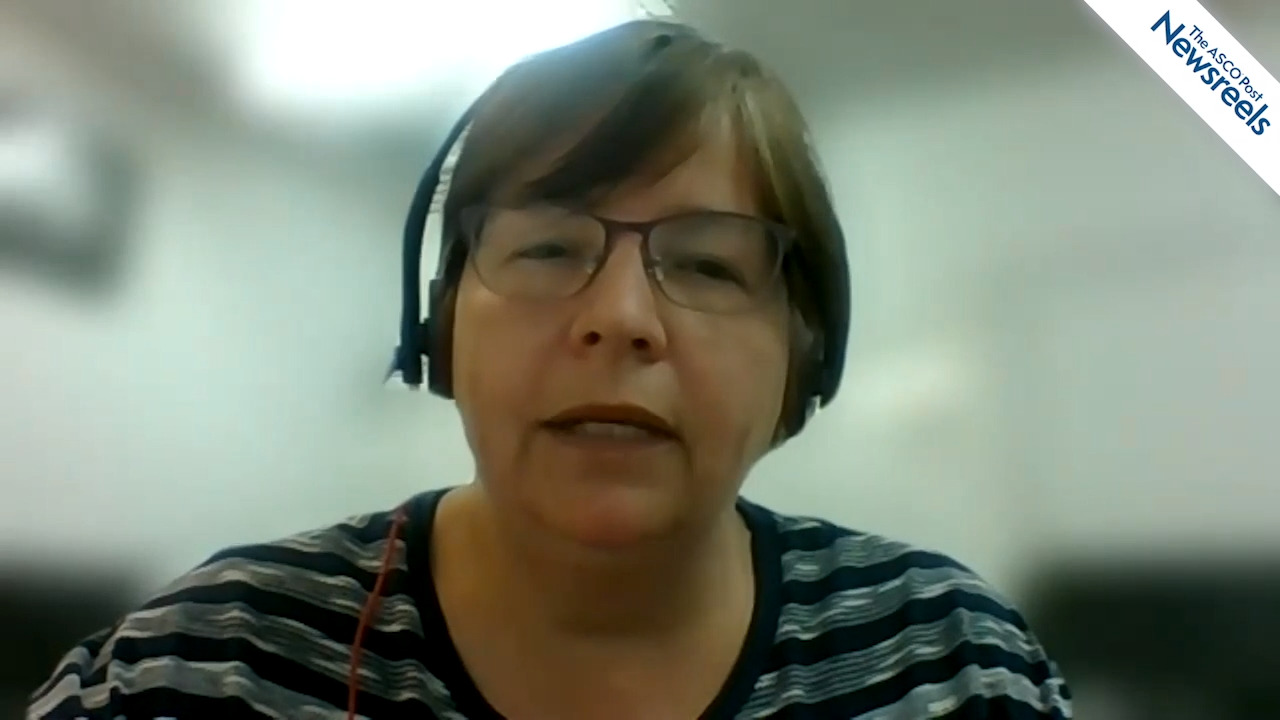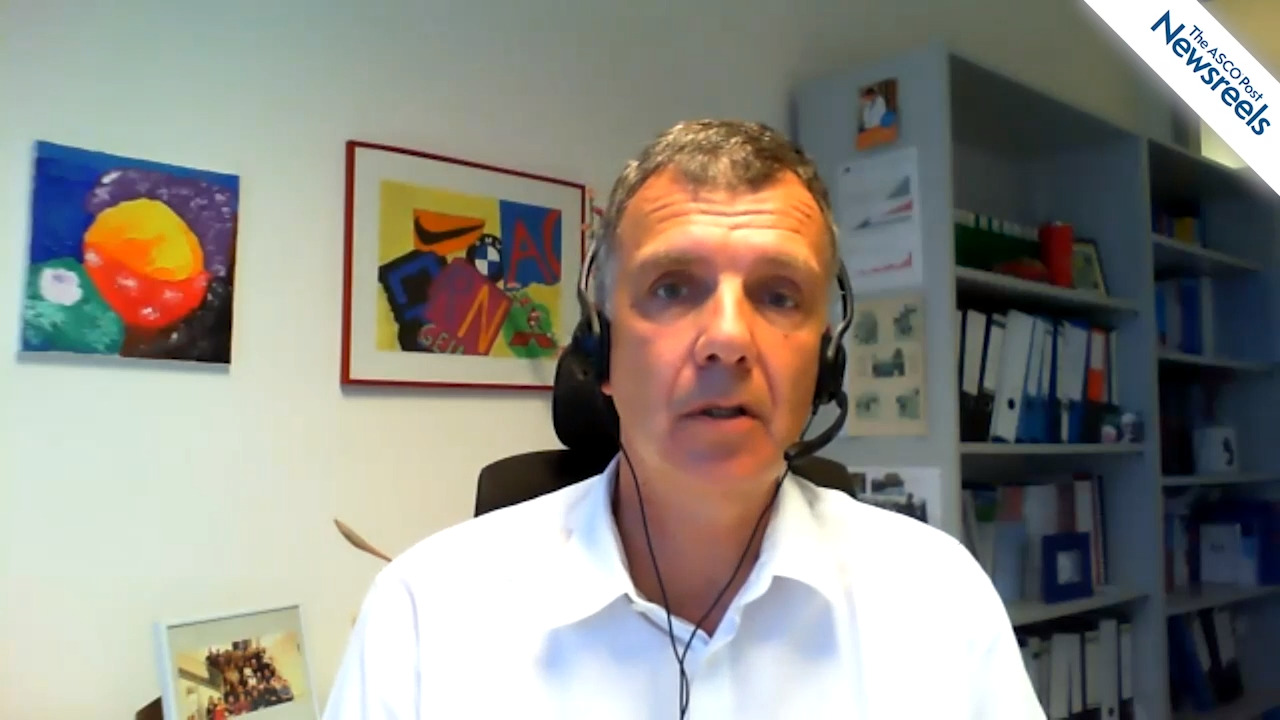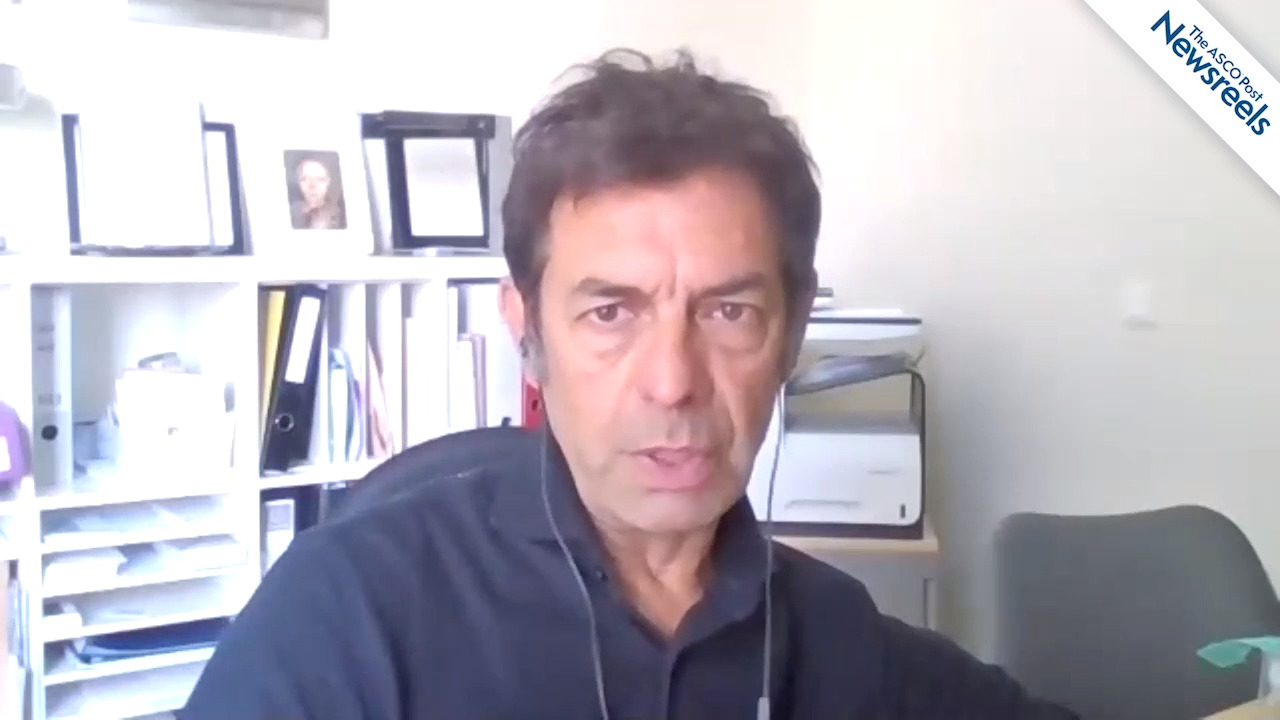Arnon P. Kater, MD, PhD, on CLL: Fixed-Duration Ibrutinib and Venetoclax vs Chlorambucil Plus Obinutuzumab
EHA 2021 Virtual Congress
Arnon P. Kater, MD, PhD, of the University of Amsterdam, discusses a primary analysis of the phase III GLOW study, which, for the first time, compared the efficacy and safety of fixed-duration ibrutinib plus venetoclax with chlorambucil plus obinutuzumab for first-line treatment of older patients with chronic lymphocytic leukemia (LB1902).
The ASCO Post Staff
Gaurav Goyal, MD, of the University of Alabama at Birmingham, reports on findings from a large multi-institutional database study, which showed there was no apparent difference in overall survival between R-CHOP and R-EPOCH among patients with advanced-stage MYC-rearranged, double-hit, or triple-hit diffuse large B-cell lymphoma. Further studies are needed for better risk stratification to optimize outcomes (Abstract S224).
The ASCO Post Staff
Ruben A. Mesa, MD, of UT Health San Antonio Cancer Center, discusses new findings on momelotinib, a potent JAK1, JAK2, and ACVR1 inhibitor with clinical activity against hallmark features of myelofibrosis such as anemia and splenomegaly. Results showed that transfusion independence was associated with improved overall survival in patients who had received momelotinib (Abstract S202).
The ASCO Post Staff
Claire Harrison, MD, of Guy’s and St. Thomas’ Hospital, discusses survival results from the JAKARTA and JAKARTA2 trials, which showed that fedratinib, an oral JAK2 inhibitor, significantly improved progression-free survival vs placebo as a first-line treatment for patients with myelofibrosis (Abstract S203).
The ASCO Post Staff
Martin H. Dreyling, MD, PhD, of University Hospital Munich Grosshadern Klinikum, discusses phase II results from the ELARA trial, which suggests tisagenlecleucel may be a promising immunotherapy for adults with relapsed or refractory follicular lymphoma (Abstract S210).
The ASCO Post Staff
Philippe Moreau, MD, of University Hospital Hôtel-Dieu, discusses findings from the CASSIOPEIA trial, Part 1, on daratumumab maintenance vs observation in patients with newly diagnosed multiple myeloma who have been treated with bortezomib, thalidomide, and dexamethasone, with or without daratumumab, and autologous stem cell transplantation (Abstract S180).
